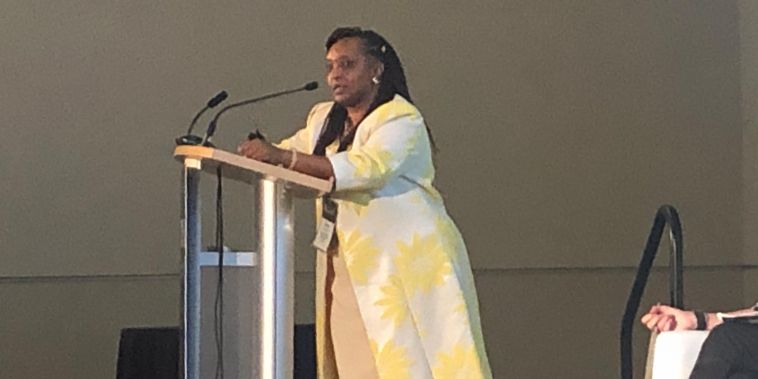African Perspectives At Women Deliver

Last week Women Deliver brought together over 8000 advocates at their conference on equality and the health, rights and wellbeing of girls and women.
As President of the African Federation of Obstetrics and Gynaecology (AFOG), I asked myself: how are these issues contexualised in the African situation, and how can they be addressed?
Across our continent, we are struggling with a range of women’s health challenges. Amongst the girl child, school dropout rates are high; she also suffers from a lack of menstrual hygiene practices and puberty rite of passage that include early marriages, teenage pregnancies (associated with pregnancy and childbirth complications), unplanned pregnancies and actively harmful practices like gender based violence and female genital mutilation/cutting (FGM). Sexually transmitted infections, including HIV can have long-term consequences, including cervical cancer.
These conditions leading to severe morbidity and unfortunately in some cases premature death, with a ripple effect in families, communities and nations.
I was inspired to see Women Deliver directly address adolescents, youth and vulnerable populations: groups that are often left out of meaningful advocacy, but have a vital role to play in forging national demographic dividends.
Africa has a youthful population of between 20 and 40 percent across countries, and there is a clear need for more educational opportunities, socio-economic advancement, and empowerment.
We are aware of the growing emphasis and understanding of the gender lens, but we need to act. Gender inclusivity and gender mainstreaming need to be integrated into health and other strategies, scaled up and sustained if the Sustainable Development Goals (SDGs) are to be achieved.
As His Excellency Hon. Uhuru Kenyatta, President of Kenya said in his keynote address,
“Failure to address inclusion of girls and women is a political, economic and moral issue.”
An important take home message for me was the opportunity of the OBGYN to step up. We need to work with likeminded stakeholders and commit, strategise, mobilise and act for reduction of gender inequities. This means taking a multi-discipliary and multi-sector approach, and a critical look at gender beyond provision of products and services. We must engage in policies and advocacy with the patient at the centre, really listening to their voices and demands.
I was proud to be a panellist at one of FIGO’s three high-profile sessions at Women Deliver, addressing the topic of Person-Centered Care: Ending Mental Health Stigma and Discrimination. In partnership with HelpAge International and NCD Alliance, we wanted the audience to leave with a better understanding of the global burden of mental health and the gender dimension, and how this impacts sustainable development.
I drew on my own experience as an OBGYN to highlight maternal mental health including postpartum depression, and as an OBGYN working across low-resource settings, to draw attention to the barriers to service provision so many women face. You cannot think of the SDGs without including mental health – in my opinion, the global goals are all attributes of mental health.
Ultimately, I wanted women to know that there are ways we can empower pregnant women that result in better maternal health outcomes.
This kind of patient-centred approach to public health, alongside health promotion and prevention strategies, is as important as curative care, and contributes towards building a robust health system informed by best practices, policy and advocacy.
The theme of ‘WD2019’ spoke to power, progress and change towards attainment of the 2030 Agenda for Sustainable Development - which so far, no country is on track to achieve. We must provide social accountability and accelerated action towards gender equality in this generation, so that the promise of the SDGs can be actualised, and that means really understanding the scale of the challenge.
As Her Excellency Sahle-Work Zewde, President of Ethiopia, emphasises,
“Data collection and disaggregated by gender, age, geography and sometimes ethnicity provides a clearer understanding for gender inclusivity.”
For the girl child and women, education provides the backdrop that informs, empowers and increases her resilience. Education promotes behaviour change, open communication and an opportunity for autonomy. Every woman and girl deserves the chance to exude her fullest potential, across her life course and continuum of care, and I firmly believe that according youth age-appropriate, comprehensive sexual education imparts life skills and safe spaces to see that not only do they survive, but thrive!